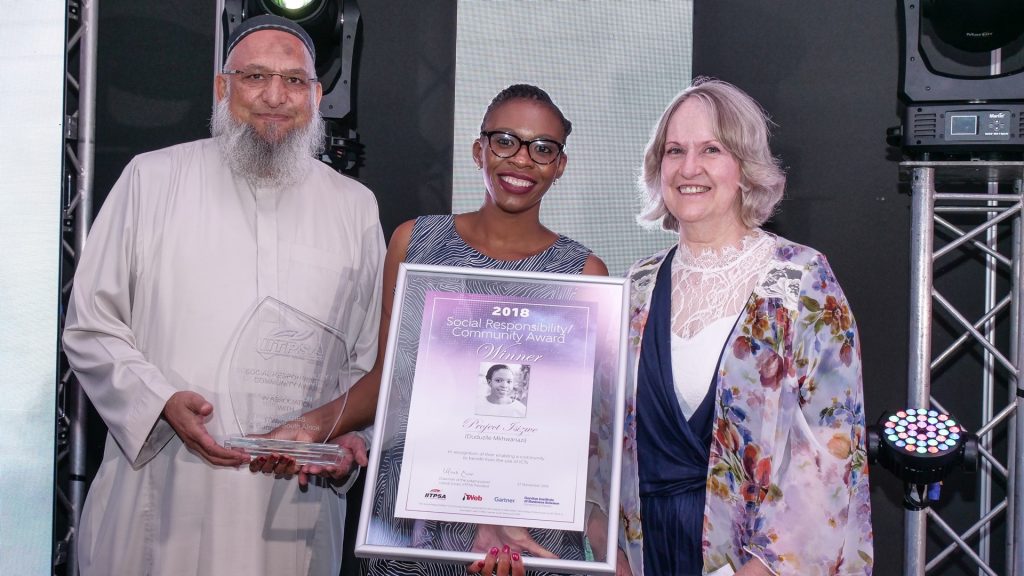At the Institute of Information Technology Professionals South Africa (IITPSA) President’s Awards this week two new awards were handed out.
One of those new awards (you can read more about the second here) is for Social Responsibility / Community Service.
The winner in this category was Project Isizwe.
The non-profit organisation works with the public and private sector to bring internet access to low-income communities throughout South Africa.
Following the ceremony we had a chance to chat with chief executive officer at the non-profit organisation, Dudu Mkhwanazi.
Speaking to Mkhwanazi it’s clear why she was appointed as the organisation’s CEO last year. She is passionate about Project Isizwe and smiles as we ask her what she think won the organisation the vote of the judges.
“I think it’s our experience in this industry. Five years ago when Project Isizwe was founded nobody thought of internet access as a public utility,” the CEO tells us.
“We’ve were pioneers connecting low-income communities [to the internet] in partnership with municipalities. Now we’re pioneers again connecting mining communities in partnership with mining companies.”
The changing face of internet access in SA
Data from Statistics South Africa’s General Household Survey 2017 (PDF) reveals that just 10.6 percent of South Africans have internet access at home. However, 56.9 percent of South Africans have internet access via a mobile device. Internet access in South Africa is growing – albeit at a snail’s pace.
This slow growth is why projects which make internet access more accessible, are so vital because they help connect low-income communities that can’t afford fibre connectivity or high-speed WiFi.
Government seems to have realised that internet access is vital as the Project Isizwe CEO tells us but more must be done.
“What’s great is that there is political buy-in. I think our political superiors understand that the world is moving towards digitalisation. What we need now is policy makers to rapidly implement policies which allow spectrum to be released,” says Mkhwanazi.
“We need policy makers to allow for other technologies not just WiFi and fibre but TV white spaces and satellites. We need to invent and not only import technologies, we must harness skills in South Africa that will allow us to build our own technologies,” says the CEO.
Looking to the future
In the coming months and years Mkhwanazi tells us that Project Isizwe will be looking at making its projects more sustainable in the long term.
“All of our projects are subsidised by private and public entities. What we’re working on now are the sustainable revenue models of all of our projects. We don’t want these projects to become white elephants in the community once the sponsor pulls back the funding,” the CEO says.
The organisation is currently testing a few models in a bid to make them all sustainable. With a footprint in five provinces Project Isizwe is testing different models of sustainability rather than trying to create a one-size-fits-all approach.
In closing Mkhwanazi says the organisation is always looking to partner with organisations.
“Connectivity and bridging the digital divide is not government’s responsibility alone, it’s all of our responsibility. If we have the financial muscle and resources we should work together,” Mkhwanazi concludes.
To find out more about Project Isizwe and perhaps get involved with the work it does visit the official website and get in touch.
[Image – IITPSA]

